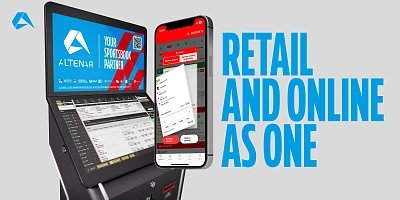As competition intensifies within the iGaming industry, choosing the perfect hosting solution becomes increasingly vital. It’s not just about maximising operational efficiency but a strategic imperative for a platform's future success and long-term prosperity.
But how do we find the best options given the complexity and demands of the modern marketplace? Let’s explore the challenges iGaming professionals face in 2024, the key factors to consider, the options available and the pros and cons of each.
Challenges and Problems iGaming Platforms Face
iGaming platforms face several challenges with respect to hosting that must be overcome to maintain a competitive and profitable operation.
Key challenges include latency, which can degrade the user experience during real-time gaming and betting. High levels of uptime are equally essential since any downtime can result in significant revenue loss and diminished trust among users. Cyber threats pose persistent risks, too, demanding robust security protocols to protect sensitive data and financial transactions. Furthermore, adhering to stringent regulatory compliance across different geographical domains adds further complexity when attempting to find the optimal hosting solution for platform requirements and business needs.
Failing to secure an appropriate hosting solution can have serious consequences for iGaming operators. Inadequate infrastructure not only jeopardises player retention and revenue objectives but also leaves companies vulnerable to legal litigation and potential fines, undermining long-term sustainability and growth.
The list of challenges operators face in securing adequate hosting provision is long. However, here’s a summary of the primary issues that must be overcome to secure optimal performance.
-
Scalability Limits - Difficulties in adapting to sudden surges in user demand and game complexity.
-
Latency Issues - Slow server response times that degrade the user experience and thus reduce customer adoption and retention.
-
Uptime Reliability - Frequent downtimes disrupting gaming operations and user trust.
-
Cybersecurity Threats - Increased risk of data breaches and theft.
-
Regulatory Compliance - Complexities in adjusting server requirements to new and diverse regulatory environments.
-
Data Sovereignty - Ensuring data is stored securely and processed as per national and local laws.
-
Cost Management - Balancing performance needs with budgetary constraints and business priorities.
-
Technical Support - Lack of 24/7 expert support when critical issues occur.
-
Integration Difficulties - Challenges with integrating third-party services and tools.
-
Disaster Recovery - Inadequate backup and data recovery systems can have dire consequences.
-
Performance Optimization - Ensuring consistent, high-quality service delivery.
Key Hosting Considerations for iGaming Operators
In the planning stage of a new iGaming platform, hosting considerations should align with both current and future needs. Initially, opt for a solution that provides a balance between cost-efficiency and performance for expected traffic. Look for scalable options that can effortlessly manage increased load as the customer base and daily traffic expand, especially during major events and promotions.
Cost considerations should include not only include the base hosting fees or hardware purchases, but also potential costs for security enhancements, data compliance, and technical support. A pay-as-you-grow pricing model might be ideal when starting out, offering flexibility and financial predictability. Additionally, when using a dedicated hosting provider, ensure they have a credible track record in iGaming for reliable performance and compliance adherence. Due diligence in this area will safeguard your platform’s long-term viability.
The key considerations to focus on from a technical standpoint include:
1. Performance
Servers must be primed for high performance and reliability to manage volume traffic and real-time data. They should be able to adapt to varying loads, ensuring fluid access and gameplay during peak times. To this aim, load balancing helps distribute incoming network traffic across multiple servers, increasing the availability and reliability of applications to provide a smooth and uninterrupted service.
Similarly, low latency is essential for real-time wagering and gaming experiences, focusing on the necessity for efficient data processing capabilities. Moreover, servers should uphold consistent and reliable uptime standards to guarantee service availability. Maintaining adequate provision in these areas inspires user trust, aiding customer acquisition and retention objectives.
2. Scalability
iGaming platforms need scalable hosting solutions to manage the ebb and flow of game complexity and user traffic. Expansive scalability ensures platforms can increase server capacity and processing power on demand without disrupting service, especially during popular sporting events, tournaments and new game launches, for instance.
This level of adaptability supports sustained growth by ensuring consistent, high-quality gaming experiences even during peak periods, and ultimately helps iGaming platforms maintain a competitive edge in the fast-paced iGaming industry.
3. Security
Reliable and robust security is a must for iGaming platforms to protect sensitive data and financial transactions. Primary security measures include end-to-end encryption to protect data transmission and multi-factor authentication to safeguard access control.
Regular security audits and compliance checks that meet the demands of international regulations such as GDPR and AML standards will also be needed. Furthermore, anti-fraud algorithms and continuous monitoring must be used to detect and mitigate security threats in real time.
Hosting Options for iGaming Professionals
Choosing the right hosting solution depends on the specific needs of the business, taking into consideration the budget allocated, the size of the platform and user base, and expected future growth predictions.
There are a few hosting options available catering to the diverse needs of iGaming operators, ranging from in-house management to various third-party hosting solutions such as dedicated, shared, and cloud-based services.
In-house Hosting
Most Suitable for Large Operators
This option involves setting up and managing server hardware within the company's premises. It offers maximum control over the infrastructure, security, and data privacy. It is particularly suitable for large operators who can afford the investment in hardware and skilled IT staff required to maintain a secure hosting environment.
Dedicated Hosting
Most Suitable for Medium to Large Operators
Dedicated hosting provides iGaming operators with servers outside of the business premises exclusively reserved for their personal use. This arrangement ensures that resources are not shared with other clients. It offers enhanced performance and security, making it ideal for medium to large operators who require consistent performance and who can absorb the higher costs.
Shared Hosting
Most Suitable for Startups and Small Operators
Shared hosting is where multiple clients share server resources. It is the most cost-effective option, and for this reason, it may be most suitable for smaller operators or startups. However, the downside includes potential performance issues due to shared resources and less control over the server environment.
Cloud-based Hosting
Most Suitable for Operators of All Sizes
Cloud hosting offers scalability and flexibility, allowing operators to easily adjust resources to match demand, which is essential during peak usage periods. It also provides high resilience and redundancy, ensuring that services remain online even if one server goes down. This option is suited for operators of all sizes due to its overall practicality, agility and cost-effectiveness.
Pros and Cons of In-house vs Off-house Hosting
For iGaming operators, the decision on whether to manage an internal hosting solution or utilise an external resource such as a dedicated server, shared server or cloud-based option requires diligence and careful consideration. Both options have benefits and drawbacks that must be evaluated against operational demands and traffic level expectations.
| Pros | Cons | |
|---|---|---|
| INTERNAL HOSTING | 1. Greater control 2. Architecture Customisation 3. Enhanced Security | 1. High Capital Investment 2. Higher Scalability Costs 3. Technical Maintenance |
| EXTERNAL HOSTING | 1. Easier to Scale 2. Higher Cost Efficiency 3. Specialist Technical Support | 1. Less Control 2. Security Concerns (shared) 3. Third-party Dependancy |
Internal In-House Hosting
Internal hosting for iGaming platforms involves managing servers and infrastructure directly within the operator's physical premises. In a nutshell, this approach provides complete control over the technical environment, facilitating bespoke configurations and enhanced security measures crucial for sensitive operations, but comes with notable drawbacks, too.
Chief among the benefits is the ability to maintain greater control over hardware and software configurations, ensuring that platforms adhere closely to stringent regulatory requirements. This control facilitates the customisation of server architecture to align perfectly with the platform's specific operational needs, thus enhancing performance and user experience. In addition, in-house hosting allows for enhanced security measures through controlled access and dedicated resources to sensitive player data and proprietary information.
However, has a few distinct drawbacks, particularly for startups and smaller companies. The capital expenditure required for hardware acquisition, coupled with ongoing costs for maintenance and specialised IT staff, can be considerable. Such financial commitments may divert funds from critical areas like marketing, which is essential for gaining market traction in the early stages of development.
Moreover, in-house hosting poses scalability challenges, as adjusting resources to meet fluctuating demands can be both cumbersome and expensive. The complexity of managing such infrastructure also demands a high level of technical expertise, potentially straining the focus from core business objectives.
Given these considerations, while in-house hosting offers greater control and security, the associated costs and complexity make it less suitable for smaller entities or those just entering the market. For these operators, prioritising financial resources towards market penetration and customer acquisition might be more strategically advantageous, possibly deferring the move to in-house hosting until they achieve a solid foothold in the market.
External Third-party Hosting
External hosting for iGaming platforms encompasses various solutions, including dedicated, shared, and cloud-based hosting. These services are managed by third-party providers and are designed to alleviate the burden of maintaining physical infrastructure directly.
Choosing external hosting through third-party providers can be good a strategic move, especially during the early stages of a platform's growth. The primary advantage lies in scalability. Resources can be efficiently scaled up or down depending on demand, which is crucial for handling user traffic spikes without a large capital expenditure. Moreover, this model is cost-effective as it reduces the need for upfront investments in hardware and ongoing maintenance costs. Operators also benefit from expert management, gaining access to specialised technical support and advanced hosting technologies, which can radically enhance operational efficiency and uptime.
However, external hosting does introduce certain drawbacks. There is less control over the physical and operational aspects of the hosting environment, which can be a significant issue for operators needing to meet specific regulatory compliance requirements. Security concerns also arise, particularly in shared hosting environments where resources are not isolated, leading to potential vulnerabilities. Another important factor to consider is that iGaming operators are dependent on the service provider, which introduces an element of risk. If the service provider fails to deliver adequate uptime or performance, it can directly impact the quality of service and thus, player satisfaction.
For operators considering an external hosting strategy, it's advisable to partner with a provider that offers the flexibility to transition to in-house hosting in the future, once the platform is well-established and ready to handle the complexities of managing its own servers. This approach allows for growth and scalability while paving the way for greater control and independence as the business matures.
Future Considerations for iGaming Operators
As new markets emerge, particularly in regions with growing tech-savvy populations, operators must choose hosting solutions that not only support these advanced technologies but also comply with diverse regulatory landscapes, ensuring seamless and secure user experiences across different geographical jurisdictions.
Do you want to take your operation to the next level?
Cloud services are revolutionising the iGaming hosting environment by offering scalable and flexible solutions that align with the dynamic nature of the marketplace. These services reduce overheads through on-demand resource availability and pay-as-you-go pricing models, facilitating rapid deployment and global scalability. This makes cloud hosting an indispensable option for both emerging ventures and established operators in online gambling.
Discover how Altenar, an award-winning iGaming software provider, can elevate your iGaming business with our fully managed, scalable, and flexible sportsbook services. Consult with our experts at [email protected] today, and let’s discuss your bespoke needs.













